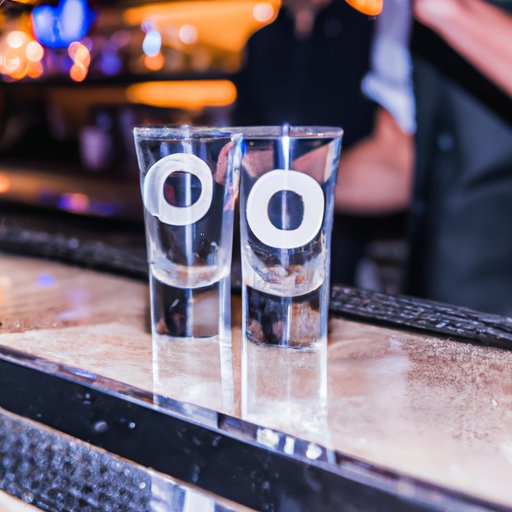
Can You Serve Alcohol at 18?
The legal drinking age in the United States is 21. This means that it is illegal for anyone under the age of 21 to purchase or consume alcohol. However, there are some states that allow individuals who are 18 years old to serve alcohol. In this article, we will explore the topic of serving alcohol at 18, examining the potential risks and benefits, the cultural differences in drinking ages around the world, and the ongoing debate in the US over lowering the drinking age.
Exploring Cultural Differences in Drinking Ages Around the World
The legal drinking age varies from country to country. Some countries have a lower drinking age while others have a higher drinking age. In Europe, for example, the legal drinking age ranges from 16 to 18. In South Korea, the drinking age is 19.
These differences in drinking ages can be attributed to cultural attitudes towards alcohol consumption. In some cultures, drinking is seen as a part of everyday life and is often consumed as a social lubricant during meals and gatherings. In other cultures, drinking is seen as a vice and is relegated to the fringes of society.
When compared to other countries, the legal drinking age in the United States is relatively high. The reasons for this vary but can be attributed to concerns about underage drinking and the potential risks associated with it.
Examining the Potential Risks and Benefits of Serving Alcohol at 18
There are some states in the US that allow 18-year-olds to serve alcohol. This is usually done to provide young people with an opportunity to gain employment in the hospitality industry. The benefits of this are clear: young people gain valuable work experience, earn money, and learn valuable skills such as communication and customer service.
However, serving alcohol at 18 also comes with responsibilities and potential liabilities. Servers must be knowledgeable about state and federal laws regarding alcohol sales and consumption. They must also be able to spot signs of intoxication and prevent situations in which customers may harm themselves or others.
Weighing the Pros and Cons of Lowering the Drinking Age
The debate over lowering the drinking age in the United States has been ongoing for decades. Advocates for lowering the drinking age argue that young people are mature enough to handle the responsibilities of drinking. They also point out that young people often drink in dangerous situations because they are doing so illegally.
Opponents of lowering the drinking age argue that it would lead to an increase in alcohol-related accidents and fatalities. They also argue that young people’s brains are not fully developed, and alcohol can have a lasting impact on their cognitive abilities.
There is no clear consensus on whether or not lowering the drinking age would have a positive or negative effect on society.
A Beginner’s Guide to Serving Alcohol at 18
If you are considering serving alcohol at 18, it is important to be aware of the legal requirements for doing so. In most cases, you will need to obtain a server permit or certification. This requires you to take a training course that will teach you about alcohol laws and responsible service practices.
Once you have obtained your certification, you will need to familiarize yourself with the responsibilities of a server. This includes knowing how to check IDs, recognizing signs of intoxication, and refusing service when necessary.
The Effects of Underage Drinking on the Brain, Safety, and Relationships
Underage drinking can have a profound impact on young people’s brains, safety, and relationships. Research has shown that alcohol can damage the developing brain, leading to long-term cognitive impairments.
Underage drinking can also lead to dangerous situations, such as drunk driving accidents and alcohol poisoning. Additionally, alcohol can impact young people’s decision-making abilities, leading to poor judgment and negative consequences for personal relationships.
Tips for Enjoying Social Events Without Drinking
For young people who choose not to consume alcohol, there are many ways to participate in social events without feeling left out. Some options include:
- Volunteering to be the designated driver
- Ordering non-alcoholic drinks
- Finding activities to do that do not involve alcohol
Sober socializing is becoming increasingly popular, and there are many benefits to participating in these types of activities. You can enjoy quality time with friends without worrying about the negative consequences of alcohol consumption.
Conclusion
In conclusion, serving alcohol at 18 is legal in some states in the US. There are potential benefits and risks associated with this practice, and it is important for young servers to be aware of their responsibilities and potential liabilities. While there is ongoing debate over the drinking age in the US, it is up to individuals to make informed decisions about their own alcohol consumption.




